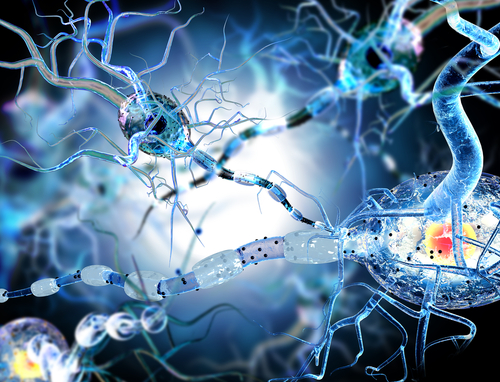Blood Biomarkers of Multiple Sclerosis May Predict a Person’s Response to Treatment

Blood biomarkers in individual multiple sclerosis patients may help clinicians determine which treatments would be of most benefit to that person, according to researchers at Oklahoma Medical Research Foundation (OMRF). The study, published in the journal Neurology, Neuroimmunology & Neuroinflammation, is titled “Cytokine profiles show heterogeneity of interferon-β response in multiple sclerosis patients.”
One of the biggest obstacles in treating MS is the wide range of patient responses to available therapies, Robert Axtell, PhD, said in an OMRF news release. He and an international team of researchers, accordingly, set out to identify patient responses to different MS drugs, including the well-established interferon-beta, a cytokine in the interferon family.
The research team measured 50 specific immune molecules in the blood of MS patients, and discovered that particular subgroups of patients responded well to standard treatments while others did not.
“We looked for biomarkers that indicated the presence of disease, because they can help us identify which patients respond to specific therapies,” Dr. Axtell said in the release. “We collaborated with a lot of folks and received blood samples and clinical data from a sizable MS patient population. It took a lot of effort from many clinical and basic scientists to complete this study.”
According to Dr. Axtell, knowledge of which biomarkers relate with certain responses to specific drugs will give scientists a better notion of how individual patients will respond to given treatments.
“Our study definitely showed us that MS is not biologically the same in every patient, and that lets us know that a personalized approach is needed when it comes to treatment,” he said.
Harald Hegen, MD, PhD, from the Medical University of Innsbruck, Austria, who participated in the study, thinks the work will help to guide patient treatment.
“Given the large and increasing number of disease-modifying treatments for MS, there is a strong clinical need for biomarkers that enable treatment allocation in the individual patient,” Dr. Hegen said. “In the present study we observed that MS patients can be grouped by specific patterns of immune molecules, which were predictive for response to interferon-beta therapy.”
The findings, Dr. Axtell said, may also help researchers use these immune molecules as a predictive MS assessment. “We need to do many other studies to verify the molecules and refine the testing before this can be taken forward commercially,” he said. “But this research lays the groundwork for developing tests for prediction of MS or patient treatment options for the disease.”
MS is a demyelinating disease in which the insulating covers of nerve cells in the brain and spinal cord, called myelin, are damaged. This damage disrupts the ability of parts of the nervous system to communicate, resulting in a range of symptoms, both physical and mental.






